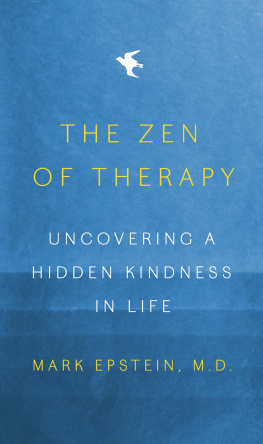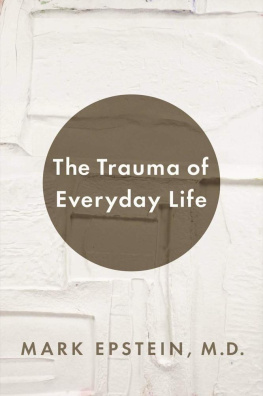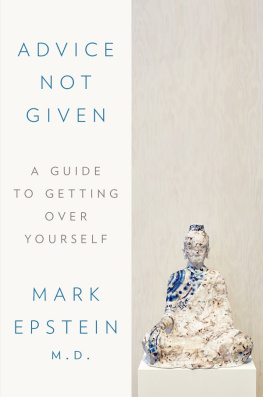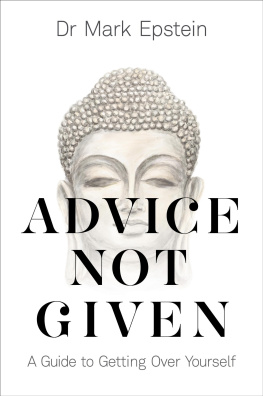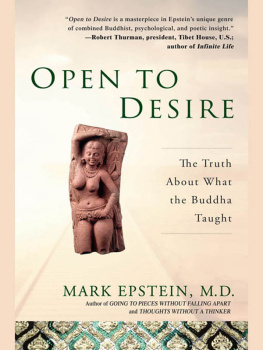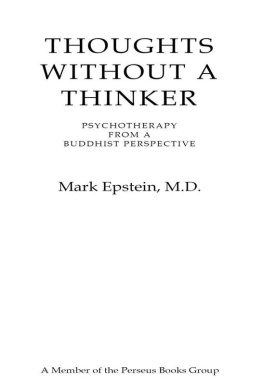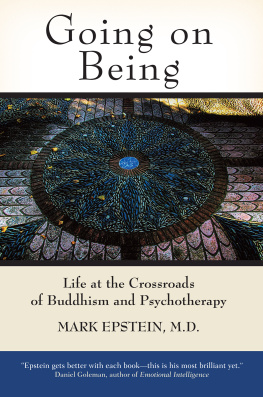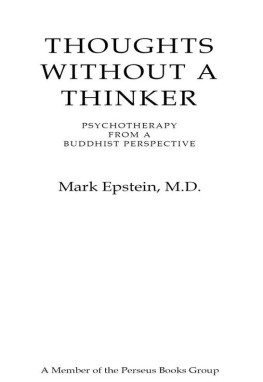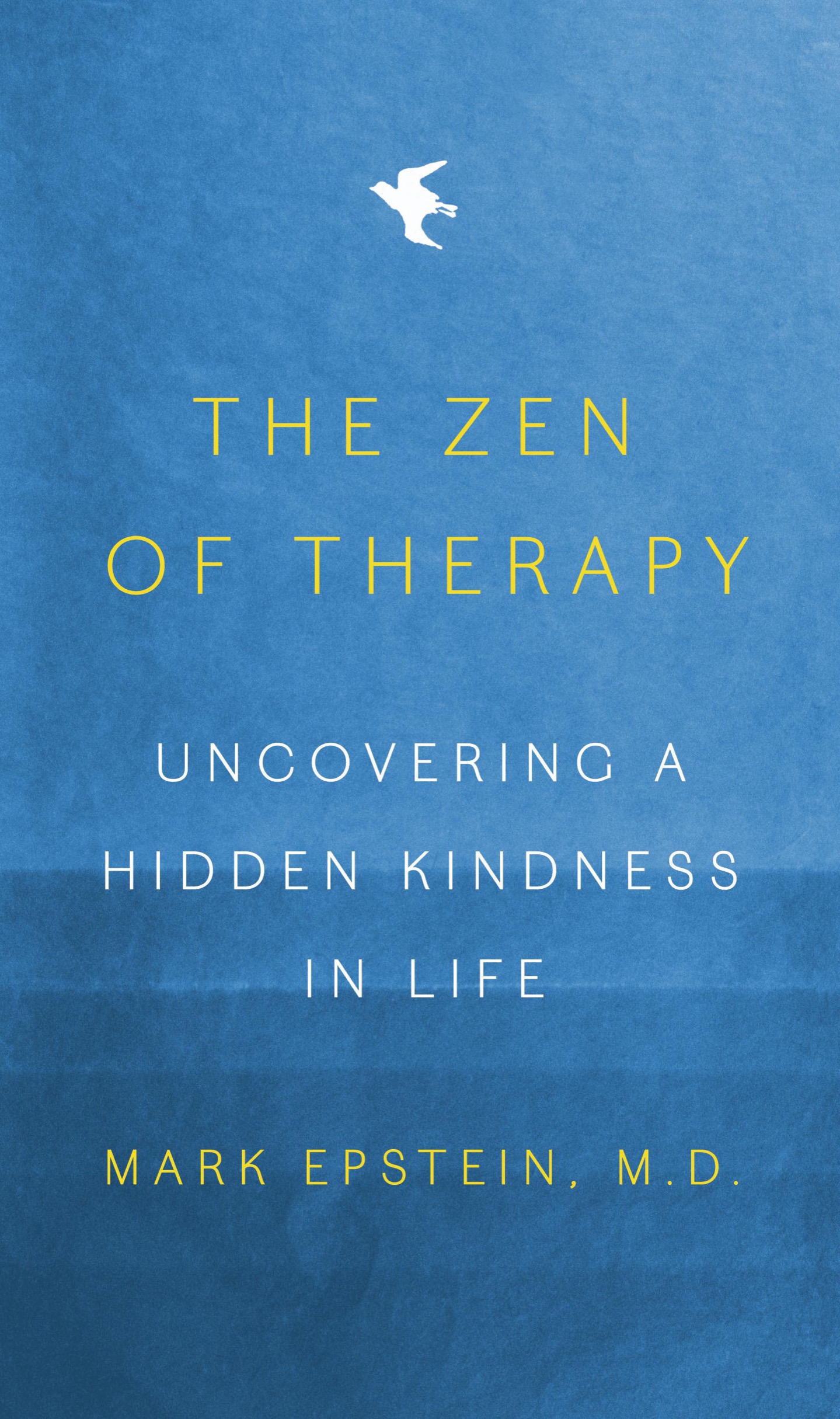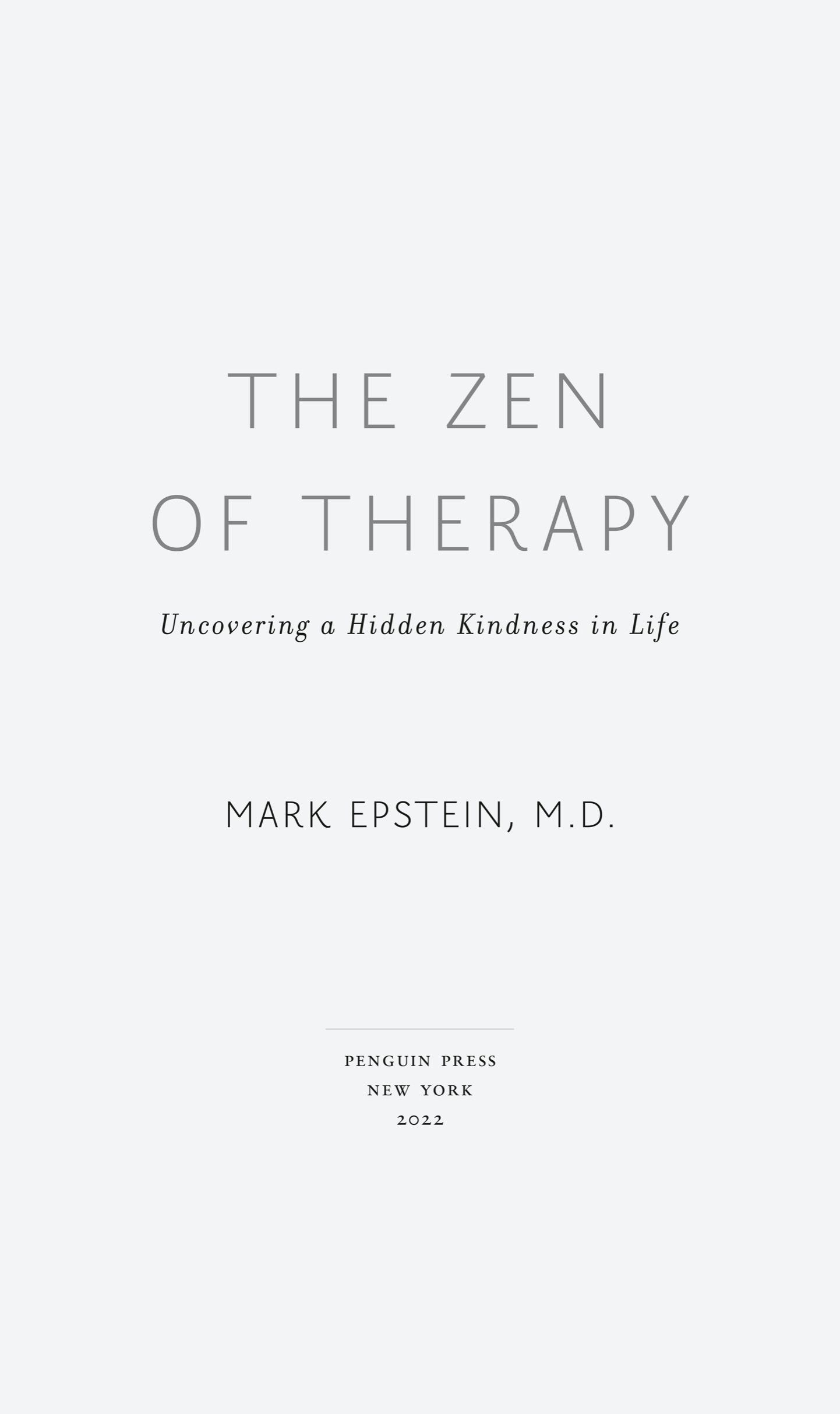In order to protect privacy, I have changed patient names and other identifying details. But the specifics of the psychotherapy sessions have been rendered as closely as possible to how they occurred. All patients read and approved the material based on their sessions.
INTRODUCTION
The Buddha, before his enlightenment, was protected by his father from ever seeing old age, illness, and death after the unexpected passing of his mother a week after he was born. Upon marrying and fathering a child of his own decades later, he finally chanced upon a sick person, an old person, and a corpse and, reacting in horror, quickly replicated his childhood trauma by abandoning his own loving family and seeking freedom (or escape) through the available spiritual pursuits of his time. After spending the next several years in the forest searching for meaningful help, the Buddha seized upon the practice of self-mortification as the vehicle of his long-sought awakening. There was already a strong ascetic tradition in ancient India, and the aspiring Buddha, in his relentless search for inner peace, saw austerity as the surest method of detaching himself from his all-too-human body and mind.
Filled with disgust and self-loathing, like many a self-hating or shame-filled person of our own era, he tried, for a long time, to remove himself from himself by deliberately renouncing all forms of pleasure. He was better at this than anyone until, at the point of self-extinction (much like modern-day sufferers from anorexia who starve themselves, tragically and heroically, until their organs begin to fail), he had an inkling that something was wrong with his basic approach. An unbidden memory came to his mind of himself as a young boy sitting joyfully under a rose-apple tree while his father plowed the fields in the distance. He was taken by the memory but surprised by how uncomfortable it made him feel. He was afraid of something that the memory brought up, he realized, frightened of the joy he had once felt. Why? he wondered. Why had the memory come at this precise moment, and why did it make him feel afraid? An answer came spontaneously to his mind, an early example of the power of free association.
He had been seeking happiness and freedom outside of himself, he grasped, when, maybe, just maybe, it was already in him, the way it was under the rose-apple tree when he was a boy. This possibility nagged at him and he began to entertain it seriously. Perhaps Ive been going about this entirely wrong, he thought to himself. Maybe Im trying to tell myself something. Could the enlightenment I am seeking lie in this direction, toward the remembered joy of my childhood? That would go against everything Ive been thinking, everything I have thought. Thats why the joy frightens me: its forcing me to rethink my entire orientation. Savoring the memory and brightened by his new understanding, the Buddha appreciated that with his body so emaciated, there would be no way of supporting such a joyful feeling. If he were going to take his realization seriously, he concluded, he had better find something to eat.
At this moment, a young woman named Sujata from a neighboring village approached him bearing a golden bowl of rice porridge. It was a case of mistaken identity. Sujata was actually bringing her offering to a local tree spirit who she believed had helped her conceive a baby. Her maid had been in the forest earlier and seen the withered Buddha languishing under the very banyan tree whose spirit her mistress had earlier propitiated, and she had rushed back to the village to excitedly give Sujata the news of her sighting. Sujata set out right away, thrilled to be able to thank the deity in person. Mistaking the emaciated Buddha for her venerated spirit, Sujata fed him, brought him back to life, and unknowingly gave him the strength to continue his quest. Sujatas milk-rice was so nutritious it is said to have sustained him for the next forty-nine days, a critical interval in which he did the internal work necessary for his enlightenment. I think of these forty-nine days as a kind of liminal period in the Buddhas life, a time of intensive therapy in which he was able to make sense of his past and reach into his future, becoming the person he was meant to be.
Sujata, of course, had no idea who the Buddha really was or who he might become. But, filled with gratitude after having recently given birth, she fed the hungry soul who had chanced into her neighborhood. There is no record of their conversation, but the Buddha is said to have held on to her golden vessel for a while, ultimately using it as a kind of talisman to verify that he was now on the right track. Tossing the bowl into a nearby river sometime later, he declared to himself, according to one ancient report, that if the bowl floated upstream against the current, it would be a sign that his change of heart was correct. It did float upstream, before sinking to the bottom and coming to rest on the bowls of three previous Buddhas who had all taken crucial nourishment at the same locale. The sound of the bowls clanging woke a local naga, or serpent king, who lived at the bottom of the river, to the news that a new Buddha was in the making. This snake, to my mind, represents the underworld, the unconscious energy the Buddha was now empowering to use for his awakening.

